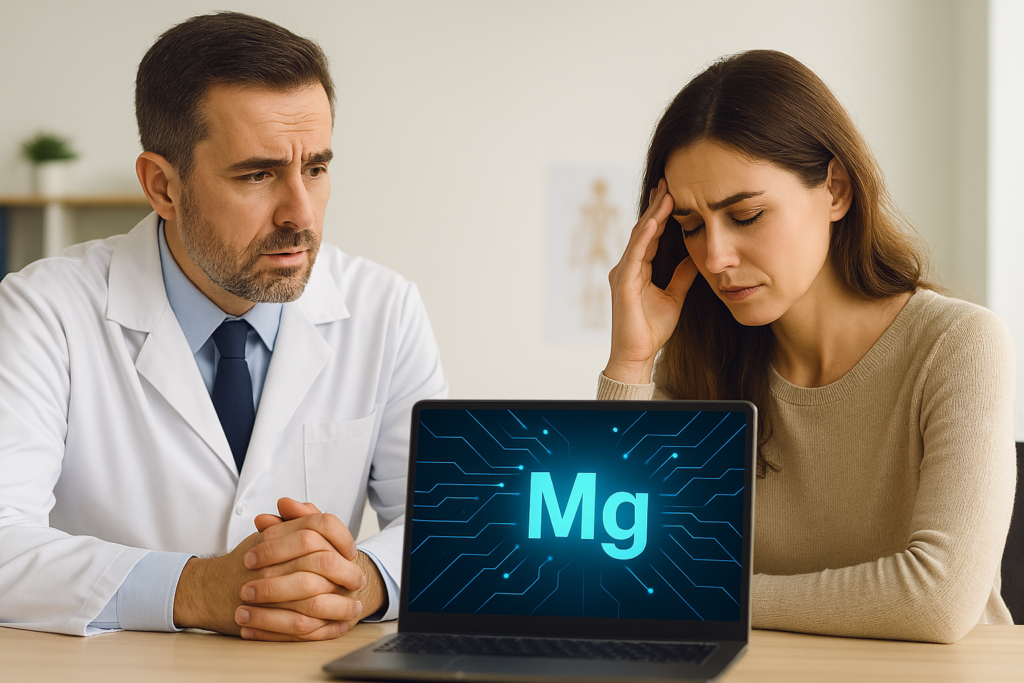Now Reading: Vitamin D Deficiency Linked to Mood Disorders and Cognitive Decline
-
01
Vitamin D Deficiency Linked to Mood Disorders and Cognitive Decline
Vitamin D Deficiency Linked to Mood Disorders and Cognitive Decline

Vitamin D Deficiency: A Hidden Trigger Behind Mood Swings & Memory Loss?
Have you ever felt unusually tired or struggled to concentrate, especially during the colder months? Or maybe you’ve noticed changes in your mood that seem to come out of nowhere. While there could be many reasons for this, growing research suggests that a lack of vitamin D might be playing a bigger role than we think—especially when it comes to our brain health.
In this post, we’ll dive into how vitamin D deficiency is linked to mood disorders, cognitive decline, and even diseases like depression and Alzheimer’s. We’ll explore what the science says, how to spot the warning signs, and most importantly, what you can do about it.
What Is Vitamin D and Why Does It Matter?
Vitamin D is sometimes nicknamed the “sunshine vitamin” because our skin produces it when we’re exposed to sunlight. Unlike most vitamins, it acts more like a hormone in the body, impacting everything from bone health to immune response—and as it turns out, even our brain function.
Despite its importance, vitamin D deficiency is shockingly widespread. In fact, about 1 billion people worldwide are estimated to have low levels of it.
Why the Brain Needs Vitamin D
Scientific evidence shows that vitamin D plays a key role in brain development and function. It helps:
- Regulate mood by influencing serotonin levels (the “feel-good” hormone)
- Protect neurons from damage
- Support memory and learning by maintaining healthy brain cells
Linking Vitamin D Deficiency to Mood Disorders
Have you ever noticed your mood take a dip during the winter months? There’s a reason for that. Less sunlight means our bodies produce less vitamin D, and this has been tied to a condition called Seasonal Affective Disorder (SAD), a type of depression that occurs during seasonal changes.
But it’s not just seasonal. Researchers have also found that people with year-round low vitamin D levels are more likely to suffer from:
- Major depressive disorder
- Anxiety
- Bipolar disorder
Study Spotlight: Depression and Vitamin D Levels
In a study from the National Center for Biotechnology Information (NCBI), researchers analyzed vitamin D levels and brain function in both healthy individuals and those experiencing depression.
The findings were clear: people with lower vitamin D levels had higher rates of depressive symptoms. Here’s a closer look at their results:
| Group | Average Vitamin D Level (ng/mL) | Depressive Symptoms |
|---|---|---|
| Healthy Adults | 34.5 | Low |
| Depressed Adults | 21.7 | High |
Vitamin D and Cognitive Decline: What the Research Says
Beyond mood, vitamin D also has a major influence on how we think, remember, and learn. That’s because it helps maintain the health of the brain’s neurons and protects them from inflammation and oxidative stress.
Low vitamin D has been linked to a faster decline in brain function. Seniors with low vitamin D are especially at risk and have a higher likelihood of developing:
- Mild Cognitive Impairment (MCI)
- Alzheimer’s Disease
- Dementia
Cognitive Performance by Vitamin D Level
Here’s a simplified table based on clinical data showing how vitamin D levels correlate with cognitive test scores:
| Vitamin D Level (ng/mL) | Cognitive Score (Max: 30) |
|---|---|
| Above 30 | 27.5 |
| 20–30 | 24.2 |
| Below 20 | 20.1 |
Could You Be Low on Vitamin D?
So, how do you know if you might be lacking vitamin D? It’s not always easy to tell, but here are some common signs to watch for:
- Fatigue or lack of energy
- Mood changes, especially depression
- Memory problems or brain fog
- Frequent illness or low immunity
- Bone and muscle aches
Your doctor can perform a simple blood test called a 25(OH)D test to check your vitamin D levels.
How to Boost Your Vitamin D Naturally
The good news? Vitamin D deficiency is usually easy to fix with a few healthy habits. Here are some strategies to get started:
- Get outside: Just 10–30 minutes of sunlight a few times a week can help your body produce vitamin D naturally.
- Eat vitamin D-rich foods: Include more fatty fish (like salmon), egg yolks, and fortified foods like milk and cereal.
- Consider supplements: Especially in winter, taking a vitamin D3 supplement can be helpful. Ask your doctor about the right dose for you.
Think of sunlight as a free multivitamin from nature. Just like plants need sunshine to grow, we need it to feel our best, think clearly, and stay emotionally balanced.
Final Thoughts
Vitamin D isn’t just about strong bones—it’s a critical part of staying mentally sharp and emotionally steady. With so many people unknowingly deficient, it’s worth paying closer attention to your levels, especially if you’re feeling off and can’t quite explain why.
If you’re tired, forgetful, or down more than usual, vitamin D might be your missing link. Fortunately, a little sun, a mindful diet, and the right supplements can go a long way toward better brain health.
And remember—your brain is like a battery. Let vitamin D be the sunlight it needs to stay fully charged.









